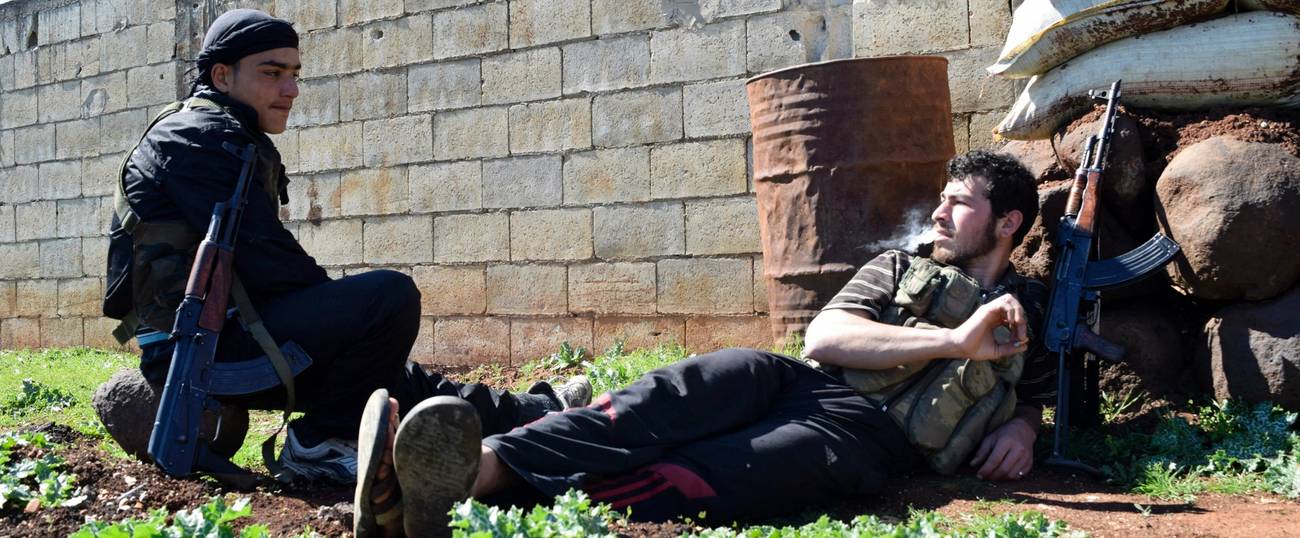Amid Shaky Ceasefire, Israel Says Syria Used Chemical Weapons on Civilians
Days into the so-called ‘cessation of hostilities’ in Syria, opposition and governmental forces are already pointing fingers at each other




The seams of the ceasefire—or so-called “cessation of hostilities”—in Syria is taking on some expected weight.
Over the weekend, for example, Russia claimed nine violations of the terms of the truce, including fire from forces in Turkish territory. Russia reportedly responded with airstrikes, and one report claimed that Russia had engaged in 26 airstrikes on February 28 alone, “targeting opposition factions that have announced their commitment to the truce.” Attacks in Damascus and Aleppo have been reported, as well, with one human rights organization citing 183 lives—civilians, and fighters from ISIS and YPG, for example—had been lost.
On Monday, a high-ranking representative claimed that the ceasefire was being violated by Bashar al-Assad, whose agreement to the terms of the truce with opposition forces, represented as the High Negotiations Committee, does not include jihadist forces, like ISIS or the al Qaeda-linked Nusra Front—or Russia, for that matter, which is backing Syria via airstrikes.
On Tuesday, Israel joined the chorus, as Reuters reported on a speech given by Israeli Defense Minister Moshe Yaalon in Tel Aviv in which he claimed has been using chemical weapons against civilians after the ceasefire had been implemented, on February 27. “The Syrians used military grade chemical weapons and lately have been using materials, chlorine, against civilians, including in these very days, after the supposed ceasefire, dropping barrels of chlorine on civilians.”
Israeli Prime Minister Benjamin Netanyahu welcomed the Syria truce efforts on Sunday but said his country might still carry out attacks in the neighboring Arab state to thwart any threats to its security.
In February, Tablet contributor Amir Tibon examined “the world’s failure to stop the massacre in Syria” in part by speaking with refugees in Presevo, a small town on the border between Serbia and Macedonia, where thousands arrive daily. The piece is heart-wrenching and insightful in that it shows the deliberately confusing war in Syria—”based on a string of lies”—in which civilians are caught in the lurch.
It felt dumb, for instance, to ask a family—father, mother, three children aged 12 to 3—who had just escaped from the burning city of Aleppo, what they thought about “Russia’s bombing campaign against ISIS.” Of course, there is no such thing. Russia isn’t focusing its effort on bombing ISIS, but rather on trying to kill the people I was talking to, who are Syrian civilians. Yet conducting the interview without treating this big lie as if it is simply an alternate explanation of events would be considered “biased reporting.” So, I ask the question and get looks of disbelief, and worse.
Nadia, the mother of this family, told me that “the Russians are the worst thing that happened to us. We survived everything before them, but when they came in to help Bashar, we said—enough. They bomb schools, hospitals, refugee camps, buses carrying people to the border.” What specifically did their involvement mean, I asked her. Her reply: “I would ask myself every morning—how are the Russians going to try to kill my children today?”
A 24-year-old from Aleppo told Tibon: “The world needs to understand that Assad and ISIS are not enemies—they are partners in destroying our lives.”
Related: The Syrian Crisis [Tablet series]
Jonathan Zalman is a writer and teacher based in Brooklyn.